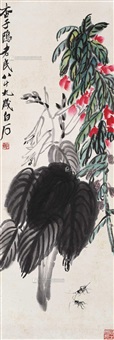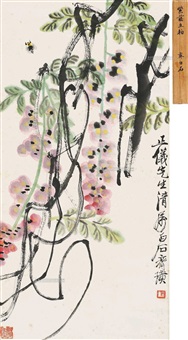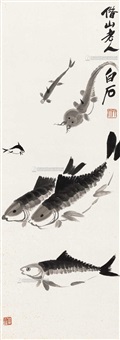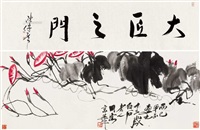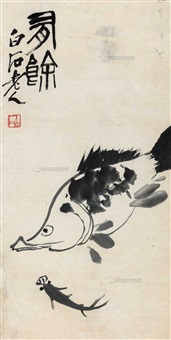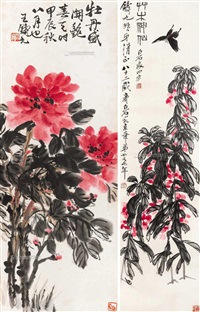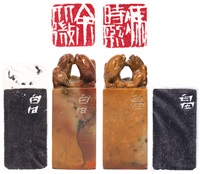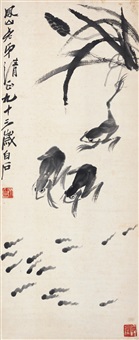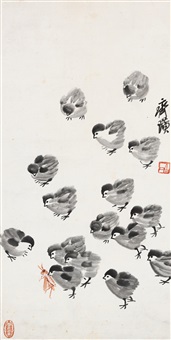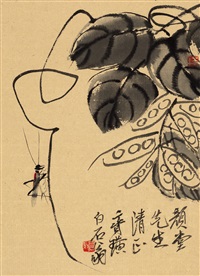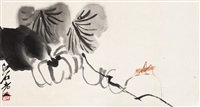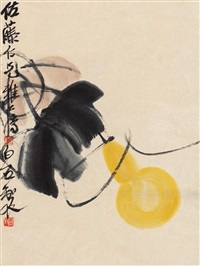Qi Baishi
(Chinese, 1864–1957)
Biography
Qi Baishi was an influential Chinese painter who is credited for modernizing the gongbi style of classical Chinese painting. Qi was born on January 1, 1864 in Xiangtan, China to a peasant family. Initially trained as carpenter, he taught himself to paint using the Manual of the Mustard Seed Garden, a painting guidebook from the Qing dynasty era. His earliest works included performers, everyday people, and animals, and he soon developed a reputation for his wide variety of subjects. Qi initially closely followed the gongbi tradition, a uniquely Chinese form of realism that favors fine brushstrokes and meticulous detail. He was introduced to the xeiyi, or freestyle method of painting, by mentor Wu Changshuo, and began employing a more lively brushstrokes and a playful tone. He died in Beijing, China on September 19, 1957. In 2017, Qi’s Twelve Landscape Screens (1925), set a new record for the highest-selling Chinese painting ever sold at auction at $141 million.
Most Expensive Artwork Sold at Auction
山水十二条屏立轴/Landscape,Twelve Hanging Scrolls, 1925
Sold price: 140,910,048 USD
Qi Baishi
(17,104 results)


